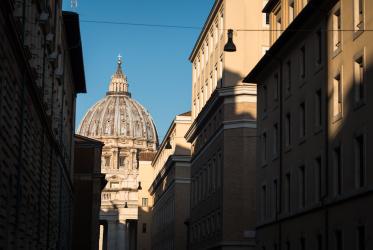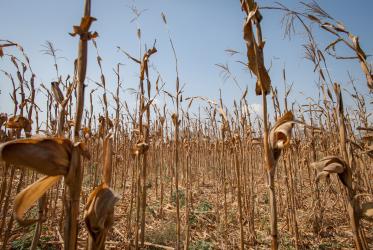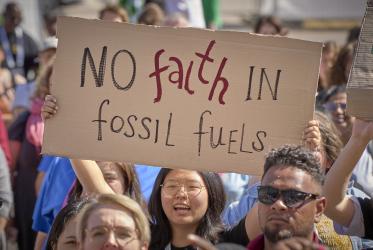Joint Working Group between RCC and WCC
Executive Meeting
24-26 April, 2017
Dublin, Ireland
Communiqué
Sharing the faith with the younger generations and the responsibility of the church for migrant communities were issues at the heart of the opening remarks of Archbishop Diarmuid Martin at the Executive meeting in Dublin, Ireland, of the Joint Working Group between the Roman Catholic Church and the World Council of Churches (JWG). The Archbishop of Dublin and Primate of Ireland who is one of the two co-moderators of the JWG together with Metropolitan Nifon of Targoviste, Romania, hosted the JWG Executive in his Archdiocese. He referred to the recent census data in Ireland which indicated the growing level of religious plurality in an Ireland with 78.3% of the population identifying themselves as Catholics, growing numbers from other Christian traditions and other religions, and of people with no religion. The group also met with leaders of Christian Churches in Dublin.
The JWG Executive dedicated significant time to reviewing the progress made by the groups working on migration and peace-building in situations of violence which are the two burning issues that the JWG wants to address more specifically during its present mandate. What is the role of churches in peace building? How are they actually involved? Which are the ecumenical challenges, and especially which are the ecumenical opportunities that arise from joint efforts at peace building? These are questions that are being addressed by the group on peace-building that tabled an interim-report of its work. All Churches are challenged by the need to offer a Christian response to the immense tragedy of people migrating under extremely difficult conditions. The group on migration intends to offer recommendations for churches regarding closer ecumenical collaboration in this area. The Executive underlined that the commitment to the visible unity of the Church is inseparable from reconciliation and peace-building and constitutes an antidote to fragmentation, exclusion, violence – all that is opposed to catholicity, the universal character of the Church.
The sharing of information on ecumenical activities from both the World Council of Churches and the Pontifical Council for Promoting Christian Unity is a standing agenda item that includes the monitoring of ongoing cooperation in the work for the visible unity of the Church, mission, justice and peace, ecumenical formation, and inter-religious dialogue. The group observed that it is most likely that cooperation on the United Nations’ 2030 agenda with the Sustainable Development Goals (SDGs) will grow at all levels. A new platform for work on the SDGs developed, bringing together Caritas Internationalis, the Anglican Communion, Lutheran World Federation, ACT-Alliance and the WCC. Most probably others will join in the future who are already cooperating in the Ecumenical Advocacy Alliance which is working on HIV and Aids and food security. The severe famine that is developing the Horn of Africa and Northern Nigeria requires close cooperation of all these actors.
The JWG Executive decided also on the venue of the next JWG Plenary meeting that is scheduled to take place on 12-16 September 2017 in Lisbon, Portugal, and dedicated time to preparing the agenda.



